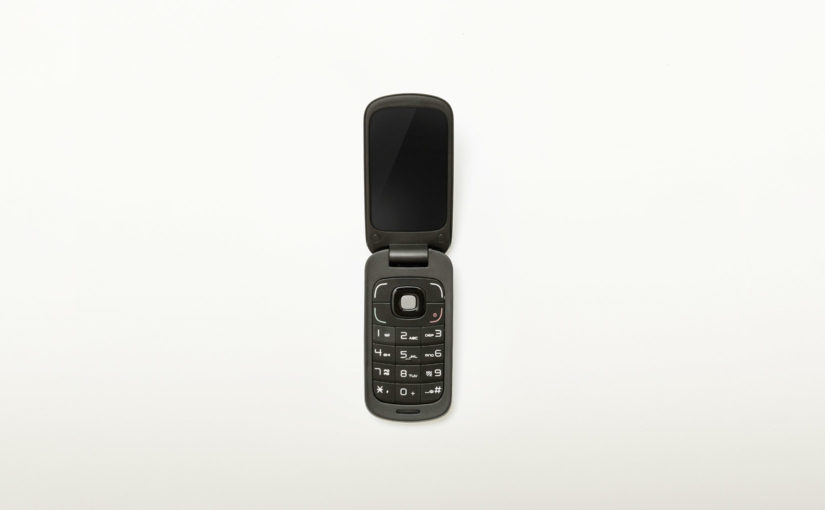Cal Newport is probably the current “thought leader” whose convictions I am most sold on, but despite numerous rereadings of Deep Work, I’ve failed to live up to the practices he prescribes. In Digital Minimalism, Newport attempts to help people like me close the gap, providing mindsets and strategies for fighting back against the digital empires making a killing off our time and attention.
Instead of arguing for a black-and-white “just quit social media,” like he does in Deep Work, in Digital Minimalism Newport takes a more nuanced approach and provides convincing arguments to help you rethink your time on social media and the internet and evaluate how your online habits can best serve you.
What value does social media bring to your life and at what cost? If you are looking for social connections, you are much more likely to be satisfied by having real real-life face-to-face interactions. In fact, your brain has evolved to do such a thing. As Newport illustrates—going to see a new mother will do more to bring you closer to her than a hundred “so sweet!” comments on her Instagram photos. Newport recommends a zero-sum game: use social media for what singular benefits it provides, and don’t use it one second longer. Instead, spend your life on activities that serve your values best.
Newport argues that a lot of the reasons why we pour our time into activities like social media, online streaming, and video games is because we have failed to cultivate our leisure lives and we’re just defaulting to whatever requires the least amount of thinking.
I was always of the mind that, especially as an introvert, I needed a lot of unstructured downtime in order to rest and recharge. But with Newport’s insights, I’ve become aware of how, although I do feel rested after a weekend spent mindlessly browsing blogs and tweets, I don’t feel especially satisfied. While it feels nice to let my attention scamper freely, it feels draining to put so much precious free time into activities of such little consequence. (“What am I doing with my life? Why do my goals always feel reserved for ‘someday‘?”) The weekends that feel most satisfying are those where I do something new that’s a bit outside my comfort zone, make a significant contribution to a personal project, or actually do something to contribute to someone else’s day. Often the route to such satisfying activities is paved with thoughts like, “Oh, I wish I could just stay home,” and “maybe I can abandon this for Netflix.” So I’ve started putting conscious attention into figuring out what it is that I want to spend my free time on, being aware that I might need to overcome some internal resistance to make new activities happen.
Newport says doing “high-def” activities that use your body in 3-D space and/or in-person social activities are usually the most rewarding. (He recommends taking up fixing things yourself… I promptly ignored that recommendation.) For my first go at filling my schedule with high-quality leisure time that reflects my values, I decided to try the following:
- attend a public speaking meetup twice per month (social and dedicates a few evenings to my goal of speaking publicly sans panic attack).
- review other upcoming meetups each week. Attend one once per week (pursues my goal of learning and meeting new people).
- replace Netflix with high-quality videos, podcasts, or board games several nights per week (pursues my goal of learning and spending quality time).
- attend two writing meetups on the weekend (gives me the satisfaction of making progress on my writing projects, definitely one of my values).
- use Duolingo on the tram (gives the feeling of a fun game while making progress on my goal to learn German. Deciding on just one activity for the tram saves me from the irritating habit of switching from reading to chat to email while I wonder what to do with my commute time).
- replace idle evening and weekend blog and Twitter time with learning Python (harvesting wasted hours into pursuing a goal).
Newport also discusses the importance of solitude. Not physically being alone, but being alone with your thoughts—no podcast on your headphones, no blog in your face, no checking your phone (not even to find the next perfect track on Spotify!). Newport goes as far as suggesting taking long walks without your phone (the horrors!). I tried this and discovered that, while I usually dedicate my walking time to becoming more informed by listening to podcasts or audiobooks, without any input I would start to coming to my own answers and unearth my own wisdom. It was like the process of solitude was a way to find the backbone of my mind—the convictions of my own being.
While I really wish Newport had commented on workplace chat (e.g., Slack), he did give me an insight that I found useful. Ever since reading Deep Work I’ve been struggling to get myself to stop checking work chat frequently. My cycle of constantly interrupting my work by checking chat destroys the periods of deep focus that I crave. Even with all notifications off, I find checking work chat really difficult to resist. Newport’s insight is that our brain is wired that when we receive a message from someone online, our brains interpret that as a tribe member at the campfire saying something to you. It would be rude—and risky to your survival—to not immediately answer that person. And I realize that this is how I feel. When I close chat with the aim to do a good chunk of uninterrupted focused time, even though I’m doing it to better complete the work I was hired to do, I can’t help but worry that there’s something urgent going on and people will think I’m not working or don’t care if I don’t answer them right away. I hope that having this understanding of why my brain is reluctant to being away from chat will help me be okay with keeping chat to predetermined time windows and protect the remainder of my work hours for concentrating deeply on one single task at a time.
Besides work chat, the other digital activity whose addictive nature negatively impacts my goals is Twitter. The problem with Twitter is that the barrier to entry is so trivial, and yet there’s some illusion that the witty comment that it took you almost no time to think up will get you ahead. Ahead of what, exactly? Sure Twitter can be helpful in getting a job or a book deal or influencing people, but you know what’s way more helpful for that? Spending that time, unfractured, doing hard work that cannot be replaced by any number of witty hot takes. If you want to actually be socially influential, take the time you would spend on Twitter and use that instead on actually developing relationships with people, learning what they’re working on, and helping them.
Despite my convictions on this, I’m still figuring out how to overcome my Twitter addiction. It would be easiest if I could just leave Twitter and never look at it again, but my job entails being on the social media platform, and having a personal account is helpful to promote tweets or interact with someone’s comments. (Also, like I said: I’m addicted.) Attempts to make my personal account for only work-necessary conversations quickly spins out and I find my time being edged in by Twitter’s endless stream of D-grade content. For now I’m hoping that filling my schedule with high-quality leisure activities will help me adopt new habits and edge out the Twitter grind, but I probably need to think of better techniques to prevent my time from being sucked up by the platform. If you have any suggestions for how to take advantage of Twitter’s benefits while mitigating its strong negatives, email me at alex at [this domain].
Anyway, those are my takeaways from the book. I highly recommend you read Digital Minimalism as well as Deep Work. They both have good audiobook versions, are well-written, and imho contain some of the most important ideas for anyone trying to do anything of consequence in our current digital age.

